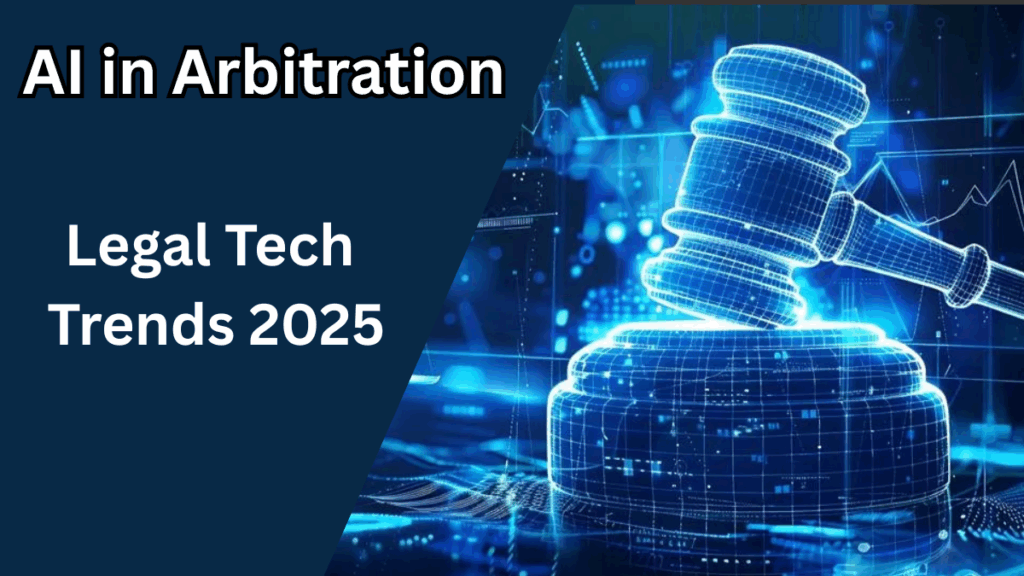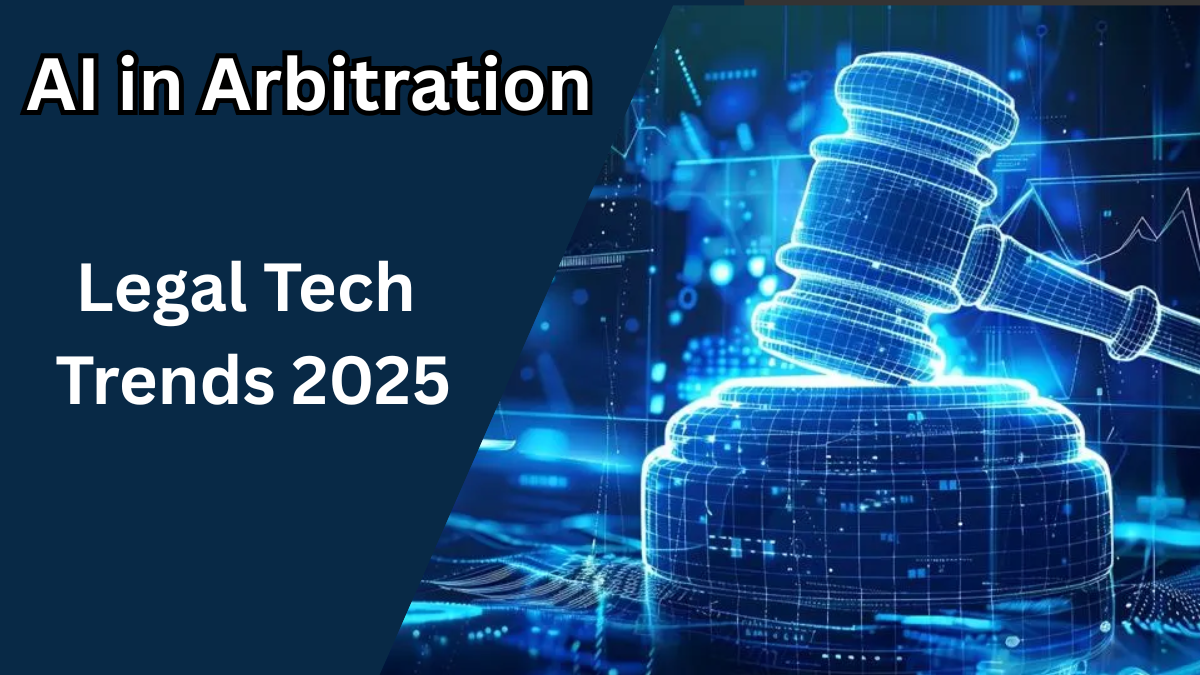The legal world is undergoing a massive transformation, and AI in Arbitration 2025 is at the heart of this change. With the rise of advanced legal tech tools, arbitration processes are becoming faster, more cost-effective, and data-driven. But what exactly is changing, and how does it impact practitioners, businesses, and clients? Let’s break it down.

Why AI Matters in Arbitration?
Artificial Intelligence isn’t just a buzzword anymore. In arbitration, it’s helping:
-
Streamline Case Management: AI-powered platforms help in organizing large volumes of documents efficiently.
-
Enhance Decision-Making: Algorithms can analyze precedents and suggest potential outcomes.
-
Reduce Time & Cost: Automated workflows are cutting down on repetitive tasks, saving both time and money.
For 2025, AI in Arbitration is no longer a futuristic concept—it’s becoming an essential part of modern legal practice.
Key Legal Tech Trends in 2025
Here are the major trends shaping the arbitration landscape this year:
-
Predictive Analytics: AI models are now capable of predicting arbitration outcomes based on historical data.
-
Automated Document Review: Intelligent systems help lawyers review contracts and evidence faster.
-
Virtual Hearings with AI Assistance: Digital platforms now integrate AI assistants for smoother virtual proceedings.
-
Enhanced Data Security: Advanced encryption and AI-driven monitoring safeguard sensitive arbitration data.
How AI Is Transforming Arbitration – At a Glance
Here’s a snapshot of AI’s role in reshaping arbitration:
| Aspect | Traditional Approach | AI-Enhanced Approach |
|---|---|---|
| Document Review | Manual, time-consuming | Automated, quick, accurate |
| Case Outcome Analysis | Based on legal expertise | Data-driven predictions |
| Cost of Proceedings | High due to long timelines | Reduced through automation |
| Hearings | Physical or basic virtual | AI-assisted virtual hearings |
Benefits of AI in Arbitration
By adopting legal tech tools, parties involved in arbitration can enjoy:
-
Faster dispute resolution through AI-assisted research and analytics.
-
Improved efficiency with automated document processing.
-
Increased transparency in how decisions are reached.
-
Cost reduction, making arbitration more accessible to smaller businesses.
Challenges Ahead
While the potential is huge, there are hurdles:
-
Ethical concerns about relying on AI for decision-making.
-
Data privacy issues, especially in cross-border disputes.
-
Need for human oversight, as AI cannot replace legal judgment entirely.
FAQs
How is AI used in arbitration?
AI assists in tasks like document review, predictive outcome analysis, and managing case data, making arbitration more efficient.
Are AI-driven arbitration decisions legally binding?
AI tools assist in analysis and recommendations, but final decisions still rest with human arbitrators.
What are the top legal tech tools for arbitration in 2025?
Platforms offering predictive analytics, automated document review, and AI-assisted virtual hearings are leading the way.
Will AI replace human arbitrators?
No. AI is designed to support arbitrators, not replace them. Human judgment remains crucial for fair and contextual decision-making.
Click here to learn more
